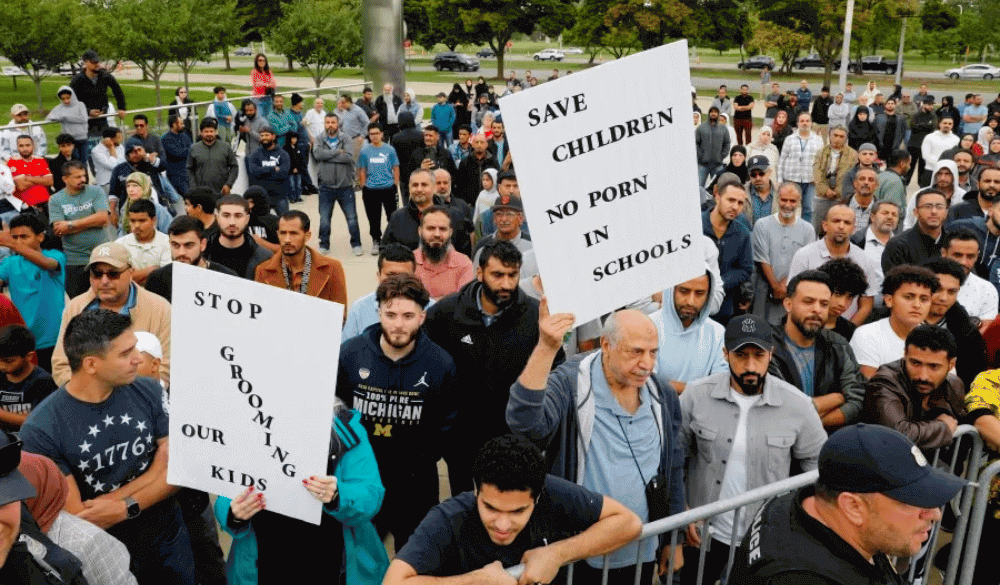What is the role of today’s parent? As a working mother of two girls, I’d like to know.
Do I decide on their schooling? Their health care? Their reality?
What about the culture I pass on to my girls? Do I get to influence their views of what is good, true, and beautiful? Am I allowed to teach them to fear evil and cling to what is good? Do we still get to object to pedophilia and child abuse, or have corporate marketing campaigns rewritten that rulebook?
Historically, mothers have been the primary transmitters of language and culture to the next generation. But with more mothers delegating daily tasks to outside institutions or to Big Tech, what culture is being passed on to our children? Will they still receive the values and ideals that we were too lazy or tired to intentionally build?
If what “Diversity, Equity, and Inclusion” trainers say is true, then we are an oppressive, negative, deeply divided, racist culture without hope for the future. With such a bleak outlook, it’s no wonder we keep outsourcing more of our moral education to corporations like Balenciaga—whose recent campaign was at best a lazy substitute for creativity, and at worst a horrifying attempt to normalize abuse.
Make no mistake: medical institutions, corporations, and educators will take up the mantle of teaching their own values to our kids. We’re already witnessing it.
Doctors at Duke University Hospital are denying a 14-year-old North Carolina girl a life-saving kidney transplant. Why? Because they don’t agree with her parents’ decision that she not receive the coronavirus vaccine.
American Girl is releasing books that are marketed as promoting body positivity, but in reality cause girls to question their very identity. They’re sowing seeds of doubt and insecurity. Feeling uncomfortable in your own skin during one of the most vulnerable seasons of your life? Your “doctor might offer medicine to delay your body’s changes, giving you more time to think about your gender identity.” The book also offers a list of organizations for children to contact if they don’t have “an adult you can trust.” Yes, this is the same American Girl company that used to distribute books encouraging young girls to be proud of where they come from, and to explore the symbols, values, and traditions that are so important to various pockets of our diverse American culture.
Local libraries that are perfectly willing to book Drag Queen Story Hours deny the same platform to a faith-based children’s book author. This is not inclusivity.
We can’t afford to lose our ability to recognize, name, and shame what is evil. If we decide that it takes too much energy and sacrifice to defend what is good, we risk delegating the welfare and innocence of our own children to others. But then again, if we have no future worth defending, why value our children? Why not treat them as disposable?
That’s not an option I’m okay with, and I have found both hope and encouragement in the last place I thought I would: social media.
Platforms like Instagram and Twitter have recently provided thousands of mothers around the country with the ability to find each other. California surf mom-turned-journalist Jessica Reed Kraus and Christian author Blake Guichet are two of the thousands of moms I see taking to these platforms daily to voice their concerns, make action plans, and do the investigative journalism so desperately needed to uncover the harm so many consumer brands are doing right now.
Six months ago, these women were constantly being shadowbanned. But as Twitter (and hopefully, other platforms) update their community policies, concerned parents are finally able to stand up and call corporate PR campaigns like Balenciaga’s what they are—dark, wrong, unacceptable. They now have the freedom to dig into marketing campaigns without fear of losing a sponsorship. They’re exposing the ideological and sexual content pushed by trusted companies and public school curricula, and rallying other moms across the country to do the same. Because they know that truth is apolitical, and it’s worth fighting for. These courageous mothers aren’t scared of being called a few partisan names if it means protecting their children.
All of us have a choice to make. We can either passively allow others to teach our children what to value, or we can create, defend, and pass on a future that is full of beauty, purpose, and flourishing. Which do you think is the courageous choice?
Elizabeth Stiff is the chief communications officer for Common Sense Society. She was previously the founding partner and C.E.O. of an international award-winning marketing agency. Her work has been featured in the Los Angeles Times, The New York Times, Good Morning America, Politico, and Times Square.
Originally published in Newsweek.

